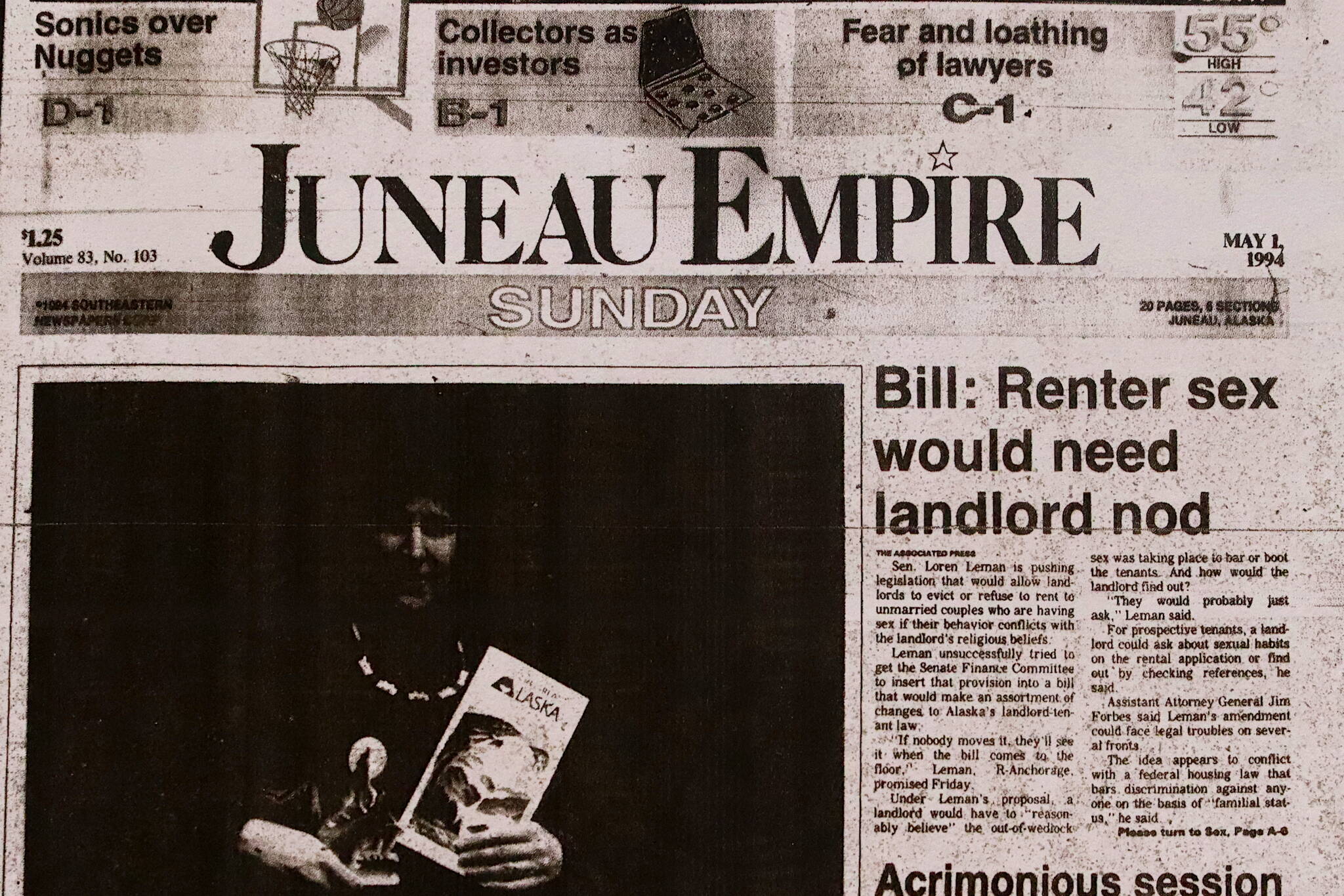Empire Archives is a series printed every Saturday featuring a short compilation of headline stories in the Juneau Empire from archived editions in 1984, 1994 and 2004.
This week in 1984, some of Juneau’s most scenic spots are turning into garbage dumps for people who are either too lazy to go to the local landfill or who don’t want to pay to get rid of their garbage, according to local officials. Jim Rhodes, a city-borough code enforcement officer whose job includes enforcing litter laws, says he finds one illegal dump almost every day. Rhodes has worked on illegal dump cases all over the city-borough, ranging from a huge dump near the float plane pond near Juneau Airport to junked cars in the Herbert River area, and on the beach near the city-borough sewage treatment plant on Thane Road. Illegal dumping is 95% big appliances, furniture and junk cars, said Dick Stokes, Southeast region programs manager for the state Department of Environmental Conservation. An illegal dump site usually grows after one person dumps off garbage. That is followed by more people including those dropping off ordinary household garbage.
Today the problem of illegal dumping continues to be widespread in Juneau, with many officials and residents blaming a tripling of disposal fees and reduction in operating hours that took effect at the landfill last year among other factors.
Original Story: “Scenic spots turn into illegal dumps,” by Kyoko Ikenoue. 5/1/1984.
This week in 1994, state Sen. Loren Leman is pushing legislation that would allow landlords to evict or refuse to rent to unmarried couples who are having sex if their behavior conflicts with the landlord’s religious beliefs, Leman unsuccessfully tried to get the Senate Finance Committee to insert that provision into a bill that would make an assortment of changes to Alaska’s landlord-tenant law. “If nobody moves it they’ll see it when the bill comes to the floor,” Leman, an Anchorage Republican, promised Friday. Under Leman’s proposal, a landlord would have to “reasonably believe” the out-of-wedlock sex was taking place to bar or boot the tenants. And how would the landlord find out? “They would probably just ask,” Leman said. For prospective tenants, landlords could ask about sexual habits on the rental application or find out by checking references,” he said. Assistant Attorney General Jim Forbes said Leman’s amendment could face legal trouble on several fronts. Among them the idea appears to conflict with a federal housing law that bars discrimination against anyone on the basis of “family stability,” Forbes said.
Original Story: “Bill: Renter sex would need landlord nod,” by The Associated Press. 5/1/1984.
This week in 2004, Judy Urquhart and her husband Jay expected a check in the mail Monday from the state for their services running a small assisted-living home in Juneau. Instead they got an invoice from First Health, the state contractor that doles out Medicaid payments to personal care providers, showing how much the couple should have received and a single line stating: “Explanation – budget.” Urquhart said her husband contacted the state Department of Health and Social Services after receiving the letter. “That’s when they told my husband that they had run out of money and that we might get paid in two weeks but it was stuck in the Legislature.” Hundreds of assisted-living homes, nursing homes and community-based care providers across the state that care for seniors and the disabled are still waiting for the Legislature to approve a supplemental budget to fund their services. Janet Clarke, administrative services director for the Department of Health and Social Services, said the department in February requested an additional $31 million in state and federal funds from the Legislature to cover the runaway cost of personal care services. This week Health and Social Services returned with an additional request of $14.7 million, Clarke said. A fast-track supplemental bill was approved by the Senate Finance Committee on Thursday but still awaits approval by the full Senate and House before the money can be distributed.
Original Story: “State runs out of money for nursing homes,” by Timothy Inklebarger. 4/30/2004.
• Contact Mark Sabbatini at mark.sabbatini@juneauempire.com or (907) 957-2306.

